

DG ISPR BL AMES GOVERNANCE FAILURES, POLITICAL CONFUSION AS TOLL RISES
g OUTLINES FACTORS BEHIND RECENT RESURGENCE IN MILITANCY, INCLUDING FAILURE TO FULLY IMPLEMENT NAP, POLITICISING TERRORISM, USE OF AFGHAN SOIL AND ‘TERROR-CRIME NEXUS’
g
g LT GEN CHAUDHRY LAMENTS ISSUE OF REPATRIATING ILLEGAL AFGHAN RESIDENTS HAD BEEN ‘UNNECESSARILY POLITICISED’
g SAYING ALL OUR PARTNERS UNDERSTAND SPACE GIVEN TO NON-STATE ACTORS IN AFGHANISTAN IS NOT JUST A THREAT TO PAKISTAN BUT TO REGIONAL AND GLOBAL SECURITY
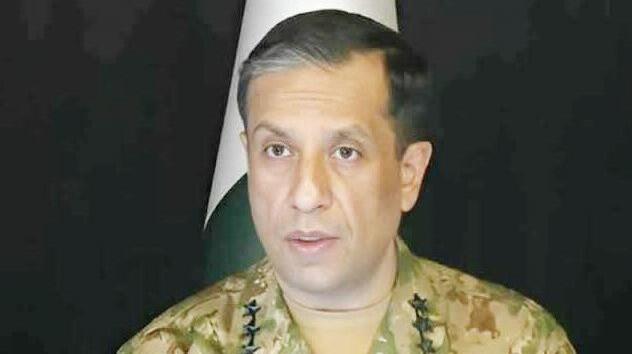


Pakistan green lights
g MISSION CONCLUDES AFTER T WO WEEKS OF DISCUSSIONS, REMAINING POLICY ISSUES TO BE RESOLVED
to
The International Monetary Fund (IMF) and Pakistani authorities have made significant progress toward a staff-level agreement (SLA) on the second review of the 37-month Extended Fund Facility (EFF) and the first review of the 28-month Resilience and Sustainability Facility (RSF), the IMF said on Thursday The IMF mission led by Iva Petrova held discussions in Karachi and Islamabad from September 24 to October 8 2025 covering both the EFF and RSF programmes At the conclusion of the discussions, Iva Petrova stated that the IMF
mission and Pakistani authorities had made significant progress toward reaching a Staff-Level Agreement (SLA) on the second review of the 37month EFF and the first review of the 28-month Arrangement under the RSF
She said that the programme implementation remains strong and is broadly aligned with the authorities commitments
We have made significant progress in several areas, including sustaining fiscal consolidation to strengthen public finances while providing necessary support for flood recovery; ensuring inflation remains durably within the State Bank of Pakistan s target range by maintaining a tight, data-dependent monetary policy;
restoring the viability of the energy sector through regular tariff adjustments and cost-reducing reforms; and advancing structural reforms to reduce the footprint of the state strengthen governance and transparency foster a more competitive business environment and liberalize commodity markets
We also held productive discussions on the authorities reform agenda to strengthen climate resilience, including completing reform measures under the RSF ” she added
The IMF team also discussed reforms under the RSF to strengthen climate resilience Petrova added that policy discussions will continue in the coming days to resolve remaining issues
The IMF expressed sympathy for those affected by recent floods and thanked Pakistani authorities the private sector and development partners for their cooperation during the mission I
KARACHI N e w s D e s k
The State Bank of Pakistan (SBP) conducted two separate Open Market Operations (OMOs) on Friday injecting a substantial amount of liquidity into the financial system to manage short-term interest rates and meet the sector-specific needs of banks The central bank deployed both its conventional and Shariah-compliant instruments The conventional reverse repo operation saw significantly higher participation with the SBP accepting a total of PKR 3
The
and

AURANGZEB HIGHLIGHTS SAUDI PARTNERSHIP,
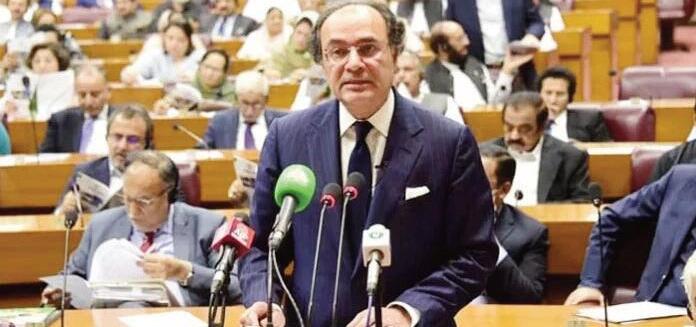
Record marine operation foils attempt to smuggle 132,000 litres of Iranian diesel ISLAMABAD G h u l
Sindh to launch traders ’ web por tal for extor tion complaints; FIRs to follow immediately: Home Minister
Alam Odho Lanjar said any complaint submitted through the portal including extortion slips or threats will lead to the prompt filing of a first information report and full legal steps against those responsible Additional IG Odho said the portal responds to traders’ “inconveniences when visiting police stations to lodge FIRs and both he and Lanjar stressed that protecting the business community and ensuring a safe, free business environment are top provincial priorities Lanjar described extortion as a growing concern and said Special Investigation Unit/Crime Investigation Agency (SIU/CIA) teams and district police are conducting coordinated operations to uproot the crime He named Wasiullah Lakho and Samad Kathiawari as extortion gang operatives currently based in Iran adding that red-warrant requests have been sent and the Sindh government will seek federal interior ministry assistance
to secure their arrests The home minister also noted that recent operations have resulted in the deaths of four extortionists and that the SIU/CIA and district police remain committed to eliminating groups distributing extortion slips or intimidating traders and citizens Additional IG Odho added that police arrested 20 suspected extortionists in the past two weeks reiterated a goal of zero extortion in the city and recalled recent successes in curbing targeted killings Citing police crime data, authorities said 118 incidents of extortion have been reported in Karachi so far this year; of these 44 were classified as genuine extortion cases and 39 of those 44 were solved a success ratio reported as 87 per cent
DG ISPR blames governance failures, political confusion as toll rises
CONTINUED FROM PAGE 01
“Appeasement of terrorists and their facilitators is never a policy,” he said “The state and its institutions will not be distracted by any political distortions Without naming anyone the military spokesperson appeared to refer to former KP chief minister Ali Amin Gandapur and Pakistan Tehreek-e-Insaf (PTI) founder Imran Khan, saying that “the state and its people cannot be left to the whims of any single person who is most responsible for bringing terrorism back to KP He said the province s leadership must protect this province and its people instead of begging Afghanistan for security Security operations and sacrifices Lt Gen Chaudhry began his briefing by paying homage to the “brave sons of the soil who had laid down their lives in the war against terror saying Pakistan especially KP, had been at the forefront of this struggle for two decades He shared detailed statistics to illustrate the military’s counterterrorism efforts In 2024 alone 14 535 intelligence-based operations (IBOs) were carried out across KP in which 769 terrorists including 58 Afghans were killed During the same year, 272 army and Frontier Corps personnel, 140 policemen, and 165 civilians embraced martyrdom From January to mid-September 2025 another 10 115 IBOs were conducted resulting in the killing of 970 terrorists while 311 army personnel were martyred When the frequency of terror incidents increased in 2021, the response also intensified, and a larger number of kharijis (outlaws) were neutralised in subsequent years ” he said FROM APS TO RESURGENCE
Tracing the history of militancy the DG ISPR recalled that after the 2014 Army Public School (APS) attack, Pakistan launched a comprehensive counterterrorism campaign that brought the region close
to peace “But unfortunately as part of a plan terrorists and their facilitators were again provided space here he remarked Governance and public welfare were deliberately weakened, and misleading narratives were promoted The people of KP are still paying for that with their blood ” ‘Failures in NAP implementation’ Lt Gen Chaudhry outlined several factors behind the recent resurgence in militancy The foremost he said was the failure to fully implement the National Action Plan (NAP), followed by politicising terrorism, India’s alleged use of Afghan soil for attacks in Pakistan and the “terrorcrime nexus” backed by local and political elements He reminded that after the APS tragedy all political parties and governments had agreed to implement the 20point NAP Yet, in 2021, some provisions were removed despite progress in those areas, and a revised 14-point plan was later adopted ” he noted
Holding up a visual chart of the NAP during the briefing he pointed to the first pillar kinetic operations and said that law enforcement agencies were fulfilling that commitment “I have presented the data for KP; are more than 40 IBOs per day not proof enough?” he asked He questioned however whether similar seriousness was being shown on the remaining points such as narrative unity judicial reforms, and de-radicalisation
Do you not hear voices today calling for talks with these terrorists? Is that in line with NAP?” he asked “If every problem’s solution lies in dialogue then why did no one say let s talk when India fired missiles at Pakistan?
JUDICIAL, POLICING AND GOVERNANCE WEAKNESSES
The DG ISPR pointed out that no convictions had been achieved in ongoing antiterrorism court cases in KP with 34 cases still pending This is the judicial system that was to be strengthened he said stressing that such institutional weaknesses
undermined the fight against terror
He also criticised the limited size of the provincial police force noting that its 3 200 personnel strength was far from adequate given the scale of threats The terrorism situation is before everyone is this number enough?” he asked AFGHAN REFUGEE REPATRIATION AND POLITICISATION
Lt Gen Chaudhry lamented that the issue of repatriating illegal Afghan residents had been unnecessarily politicised He said misleading claims were made when the state took a lawful and necessary decision to send back undocumented foreigners “After the US withdrawal in 2021 modern weapons and ammunition left behind in Afghanistan are now being used by terrorists against Pakistan, he revealed, adding that such weapons were recovered from militants killed in operations Engagement with Afghanistan
Responding to questions about a reported explosion in Kabul the previous night which media claimed targeted banned Tehreek-i-Taliban Pakistan (TTP) chief Noor Wali Mehsud the DG ISPR said the army had noted social media chatter and the Taliban’s statement
“Afghanistan is a neighbourly Islamic country with historic and cultural ties to us he said We only demand one thing: do not allow your soil to be used for terrorism against Pakistan
He described this demand as fair, rational and our right,” adding that Pakistan engages Kabul at multiple levels directly bilaterally and through allies to raise concerns about the presence of terrorist leaders and their networks inside Afghanistan While we continue this engagement, let me make it clear: we will do whatever is necessary to protect the lives of Pakistan’s people and its territorial integrity ” he warned Asked whether Pakistan or its allies carried out strikes in Afghanistan Lt Gen Chaudhry replied that the evidence
clearly shows Afghan soil is being used for terror operations in Pakistan He reiterated that necessary measures for defence and internal security are being and will continue to be taken SAUDI DEFENCE PACT AND INTERNATIONAL COOPERATION
The military spokesperson was also asked whether Saudi Arabia following the recent defence agreement could play a mediatory role with Afghanistan He replied that Pakistan already engaged Saudi Arabia, the UAE, China, the US, Turkiye and other allies on counterterrorism coordination
“All
mission
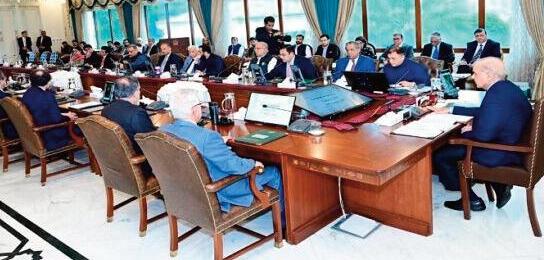

COMMENT
TH AT Pakistan is now bombing Kabul is a strange turn of events No one imagined it possible after the fall of Kabul only in 2021 when the Taliban took back power after having been ousted two decades before The Taliban had been hand-in-glove with the Pakistani establishment from its founding in 1993, and it was expected that the new Kabul government would be friendlier to Pakistan than the previous one However things soured and it became increasingly clear that the Afghan Taliban did not share the same goals Most contentious was their support for the Tehrik Taliban Pakistan, which allowed the latter safe havens for their fighters They used these to launch attacks on Pakistan and used captured US arms abandoned as US troops precipitately left Afghanistan, and given the TTP TTP complicity with The Baloch Liberation Army and India s Research and Analysis Wing was shown during the Jaffer Express outrage in Balochistan but there are reports of infighting as well However the last straw for Pakistan was the recent clash in Orakzai district formerly a tribal area, which saw 11 Armymen martyred, including a lieutenant-colonel and a major, while 19 militants were killed It is something of a coincidence that Afghan acting Foreign Minister Amir Khan Muttaqi left for New Delhi that day and that TTP leader Wali Mahsud was in Kabul India does not recognize the Taliban government
The attack should also be seen in the light of the USChina global rivalry US President Donald Trump recently expressed an interest in retaking Kabul’s Bagram Airbase and has also been pulling back from the Indian alliance and warming up to Pakistan At the same time, the USA cannot look with equanimity on the Chinese plans, still far from fruition, if obtaining rare-earths and other minerals essential to modern hi-tech Pakistan has its own agenda but this attack fits in with the USA’s Within the AfghanPakistan context, to the dispute over the Durand Line, which goes back to 1893, has been added the refugee return issue, with Pakistan insisting that Afghanistan accept back its citizens and Afghanistan reluctant The Taliban rulers of Afghanistan can either accept that their support of the TTP cannot be prolonged, especially now that terrorism has been converted into waging war, as it has been doing for some time, or it can prepare to be pounded further It should keep in mind that the British the Soviets and the Americans were all foreign forces fighting in an alien land while the Pakistan armed forces are at home, entrenched among their own people

Dedicated
M A Niazi Editor Pakistan Today Babar Nizami Editor Profit
TH E struggle of India’s Adivasis indigenous peoples of central India has long been overshadowed by narratives of insurgency and national security Yet beneath the state s rhetoric lies a systematic campaign of repression against Adivasi human rights defenders who challenge land dispossession, militarisation, and extrajudicial violence Recent developments in Chhattisgarh highlight how defenders of indigenous rights are criminalised for exercising freedoms of speech assembly and association with the United Nations Office of the High Commissioner for Human Rights expressing deep concern over these violations
The cases of Raghu Midiyami and Suneeta Pottam, co-founders of the Moolvasi Bachao Manch (MBM) expose the shrinking civic space for Adivasi voices Both have faced arbitrary detention denial of due process and reprisals for peacefully mobilising their communities against displacement and violence Their persecution illustrates a broader pattern where the Indian state increasingly conflates peaceful activism with insurgency, eroding democratic protections for its most marginalised citizens On 27 February 2025 while receiving treatment for severe injuries sustained in a road accident at Dantewada District Hospital Midiyami was forcibly taken away by officials of the National Investigation Agency (NIA) His arrest was not coincidental; it came on the very day he was scheduled to sign a petition challenging the state ban on MBM The High Court ultimately dismissed this petition on 5 May 2025 but the timing underscores the retaliatory intent behind his detention What followed revealed not only the criminalisation of activism but also the deliberate neglect of his basic human rights Despite court orders instructing prison authorities to provide medical treatment for his accident-related injuries, Midiyami was repeatedly denied care His wounds were left untreated began to heal incorrectly and urgent surgical intervention was ignored This calculated medical neglect amounts to inhuman treatment and violates both Indian constitutional guarantees and international human rights norms
As a founding member of MBM, Midiyami has been a prominent voice against arbitrary detentions extrajudicial killings and state-backed displacement in Bastar His work rooted in peaceful mobilisation of Adivasi youth directly challenged entrenched patterns of impunity His arrest must therefore be understood as an attempt to silence one of the few remaining defenders willing to confront state excesses in Chhattisgarh
Equally troubling is the continued targeting of Suneeta Pottam a long-time advocate for Adivasi women and girls Since 2016 she has faced repeated threats intimidation and harassment for her activism The retaliatory nature of these actions became clear in two incidents in 2024
On 9 April 2024, plainclothes police in Bijapur attempted to drag Pottam into a vehicle without a warrant claiming she had been “summoned ” She resisted demanding legal documentation that was never produced This incident reflected the blatant disregard for due process that has become a hallmark of state behaviour in Bastar Less than two months later, on 3 June 2024, her residence in Raipur was raided by police She was arrested without a warrant accused of fabricated charges ranging from murder to damaging government property and of being associated with the banned Communist Party of India (Maoist) Detained in Jagdalpur prison her arrest documents explicitly linked her detention to her activism with MBM, opposition to police camps, and resistance to state-led development projects Despite her pre-trial detention period expiring on 31 July 2025 she remains incarcerated a prisoner not of law but of her dissent The systematic nature of her persecution reveals how gendered repression is used to silence Adivasi women defenders who dare to speak against entrenched structures of power
The persecution of Midiyami and Pottam is not isolated It reflects a wider pattern in which Adivasi defenders are branded as “insurgents” for raising concerns about human rights violations By equating peaceful resistance with armed rebellion Indian authorities have created a chilling effect across Adivasi communities
This pattern of fabricated charges, arbitrary detention, and prolonged imprisonment demonstrates a deliberate strategy: to dismantle community movements through attrition fear and legal harassment
The consequence is the erosion of democratic space in India s heartland where Adivasi voices are either silenced or forced underground
The OHCHR s intervention underscores the gravity of the situation, but international condemnation alone is insufficient India’s persistent framing of indigenous resistance as “national security” allows the state to justify exceptional measures that contravene both domestic constitutional protections and international human rights obligations
The repression of Adivasi defenders has farreaching implications First, it erodes

If India aspires to global leadership and legitimacy, it must begin by protecting its most vulnerable citizens and respecting the rights of those who defend them. Until then, the persecution of Adivasi defenders will remain a stark reminder that in the worldÊs so-called largest democracy, speaking for the marginalized remains one of the most dangerous acts of all.
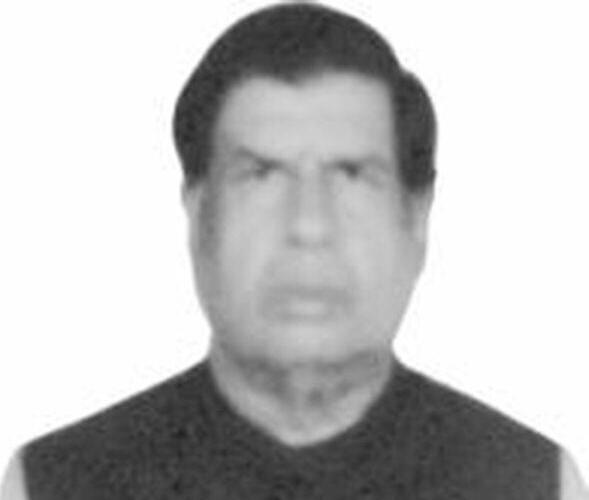

Teducation has been a neglected area but its role in shaping the future of the nations is now being widely recognized As a result, significant efforts and resources were being directed through the introduction of blended learning and modern technologies The incumbent federal government headed by Prime Minister Shehbaz Sharif indeed was fully aware of these challenges and was duly committed to prioritizing the education sector Furthermore, efforts were also being made for bringing out-of-school children into schools, improving the quality of education, and creating a conducive learning environment among other initiatives Due emphasis was also being placed on both primary and higher education for making the younger generation competitive from an early age For a country like Pakistan, this focus was even more critical for socio-economic development, as it facilitated the effective transition of its large youth population
Transforming 63 percent of the youth into real assets quite obviously required optimal capitalization through the establishment of
and higher education institutions Education was undeniably crucial for shaping the individuals and societies in contemporary times It was the cornerstone for economic prosperity Education as such goes beyond mere knowledge acquisition, it focuses on developing critical thinking abilities and practical skills that were essentially required for navigating life s multifaceted challenges Moreover it also promoted social cohesion tolerance and a sense of unity, empowered by education, individuals were duly poised for making their substantive contributions to their communities and the broader global milieu Education was not solely about attaining some credentials but more importantly about empowering the individuals and catalyzing their positive societal transformation as well Article 25A of the Constitution mandates free and compulsory education for children aged five to 16, as does Goal 4 of the Sustainable Development Goals (SDGs) Also in line with the objectives of URAAN Pakistan vision It provides an in-depth analysis of enrolment trends across the regions and genders the expansion of higher education institutions, the composition of faculty Ph D vs non-Ph D and significant initiatives of Higher Education Development in Pakistan project It also underscored the strategic achievement institutional
reforms and new initiatives in the higher education sector particularly focusing on the promotion of research and development within the higher education institutions
Focusing on the provincial level offered a comprehensive overview of the government efforts for spreading education and knowledge throughout the population Additionally skill development was also a crucial component of the educational framework and it has become a top government priority, with notable achievements and ongoing projects duly highlighted for clarity Central to this effort was the essential role of the National Vocational and Technical Training Commission (NAVTEC) in providing professional training to youth and the skilled workforce enhancing national productivity and facilitating the export of labour abroad
It is good to note here briefly that PM Shehbaz Sharif is very keen for mainstreaming the youth equipping them with proper education and skills and directing all concerned quite frequently to continue taking appropriate measures in this regard
The writer is Lahore-based Freelance Journalist, Columnist and retired Deputy Controller (News) Radio Pakistan Islamabad and can be reached at zahidriffat@gmail com
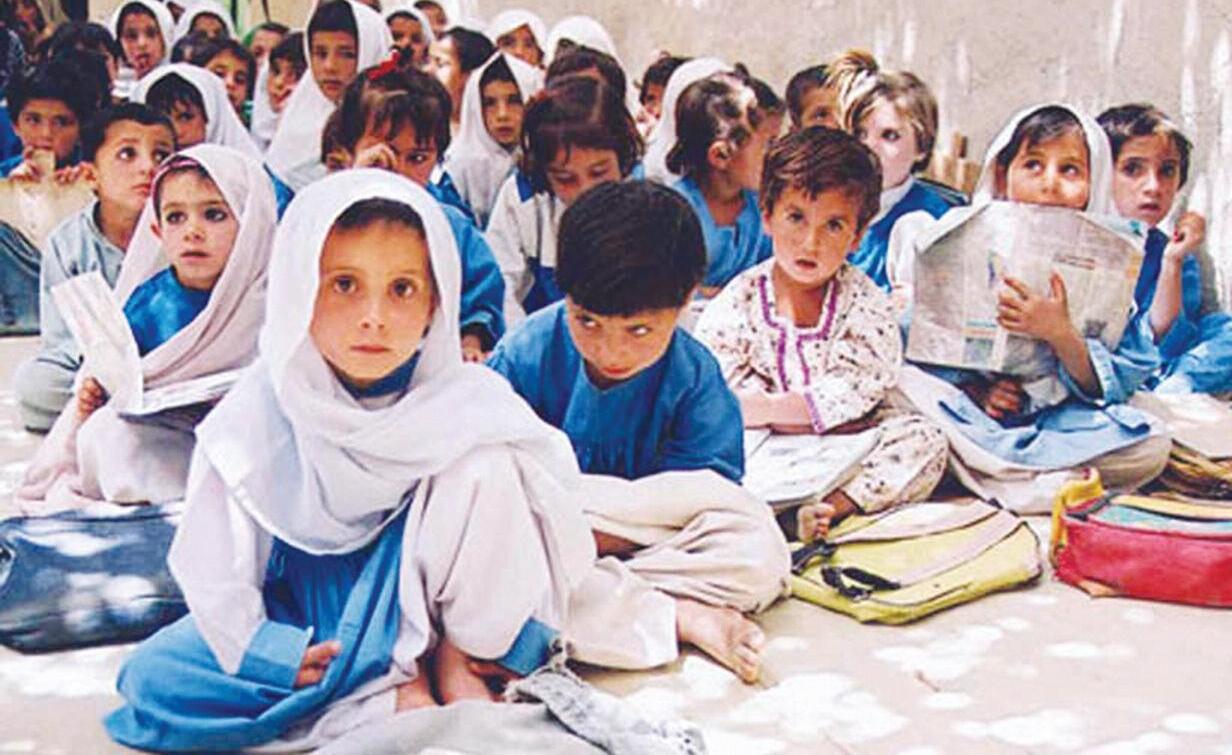
SEPCO’S failure
Moving into modernit y
MuhaMMad Zahid Rifat

H i g h - s t a k e s g a m e s i n t h e M i d d l e E a s t
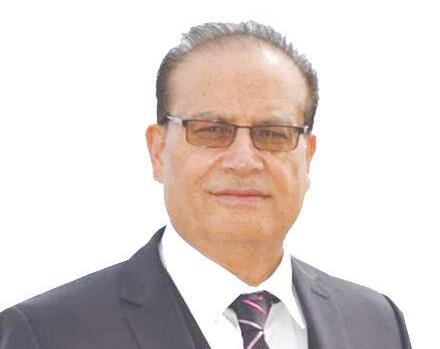
TH E Middle East has long been the epicentre of conflict, betrayal, shifting alliances and global manoeuvring Yet the most recent chapter has revealed not just another tragic confrontation but a sophisticated high-intensity, high-stake game where every move was calculated to achieve both destruction and survival The sequence began with Hamas’s surprise attack on Israel an operation described by some analysts as clumsy and poorly coordinated yet one that paradoxically many claim was abetted by Israel itself to trigger a wider conflict What followed was a brutal escalation that saw Gaza reduced to rubble, its people starved, slaughtered, and collectively punished under what international observers called nothing less than genocide The early days of the war set the stage for Israel s long-held expansionist ambition: to annex Gaza, the West Bank, and potentially extend its dominance into the broader Middle East With the USA’s unconditional backing Israel unleashed a campaign that turned Gaza into what one doctor called a slaughterhouse where children women doctors and civilians were killed daily in horrifying numbers This genocidal spectacle shocked the world and forced international powers to take sides China and Russia limited their involvement largely to issuing statements avoiding direct entanglement The real surprise came from Europe Under immense public pressure European governments pivoted dramatically Citizens poured into the streets demanding sanctions against Israel, recognition of Palestine as a state, and an end to the occupation Governments responded by cancelling military civilian and economic agreements with Israel withdrawing investments and promising support for a two-state solution This groundswell of European public opinion became a turning point For decades, Israel had enjoyed near-total im-
punity in Western capitals but this time the moral force of public condemnation began to erode even the most entrenched political loyalties One decisive moment came when a prominent European leader flew to Israel not to offer support but to confront its leadership creating diplomatic shockwaves and forcing new pressure on Tel Aviv Equally astonishing was the role of the Muslim world Long criticized for division and inaction, the Muslim ummah displayed unprecedented cohesion Iran while vilified as a sponsor of Hamas proved its influence by supporting Palestinian resistance and deterring Israel and the USA from full-scale regional escalation The collective strength of Muslim nations, particularly through economic and diplomatic channels, became a bargaining chip powerful enough to push the USA toward reconsidering its position Amid this turmoil President Donald Trump played what many now describe as one of the most intelligent and strategic diplomatic games of his career Historically, US presidents have been tethered to Israel s narrative, often adopting regime-change agendas across the Middle East at Israel’s urging Israeli PM Benjamin Netanyahu for example loudly advocated regime change in Iran Syria Iraq and Libya But Trump deviated sharply from this script He refused to endorse Netanyahu s ambition to annex Gaza and the West Bank, despite widespread support for the idea within Israel’s parliament and public opinion He rejected calls for regime change in Iran signalling that Washington would no longer be manipulated into destabilizing yet another regional power For Israel, this was an unprecedented betrayal For the world, it was a signal that the USA might finally be pulling back from decades of Middle Eastern entanglements Trump’s stance marked a turning point It reflected not only his desire to assert American independence from Israeli influence but also his recognition that the USA could not afford endless wars while its econ-
omy and political institutions were under strain His 21-point peace plan became the centrepiece of this recalibration a plan that sought not only to stop the carnage in Gaza but also to end centuries of conflict by pushing for a viable two-state solution When Trump unveiled the plan many dismissed it as fragile unrealistic and destined to fail Yet, against all odds, it gained momentum
The plan s strength lay not in forcing capitulation but in balancing interests It acknowledged Hamas as a legitimate political actor something Israel had long resisted and compelled Israel to sit at the same negotiation table as its sworn enemy
In an unprecedented development Hamas and Israel accepted the first phase of the plan This meant an agreement to a ceasefire, humanitarian access to Gaza, and recognition of Palestine’s right to statehood in principle The agreement is expected to be formally signed in Egypt with Trump himself likely attending the ceremony This moment is remarkable not only for its symbolic power but also for its practical implications For the first time in decades, Israel was forced to concede negotiations that recognized Palestinians as equal stakeholders Trump s ability to leverage European sanctions Muslim unity and US political will into one cohesive push was a rare alignment of global forces
The immediate outcome of the plan is the cessation of the most brutal phase of the Gaza war Yet its long-term implications are far more significant If implemented fully it could establish a two-state solution with Palestine gaining international recognition and sovereignty, force Israel to halt annexation and ethnic cleansing policies, rebalance US foreign policy away from blind loyalty to Israel strengthen European political autonomy and reinforce Muslim nations’ influence as collective economic and diplomatic actors in global politics
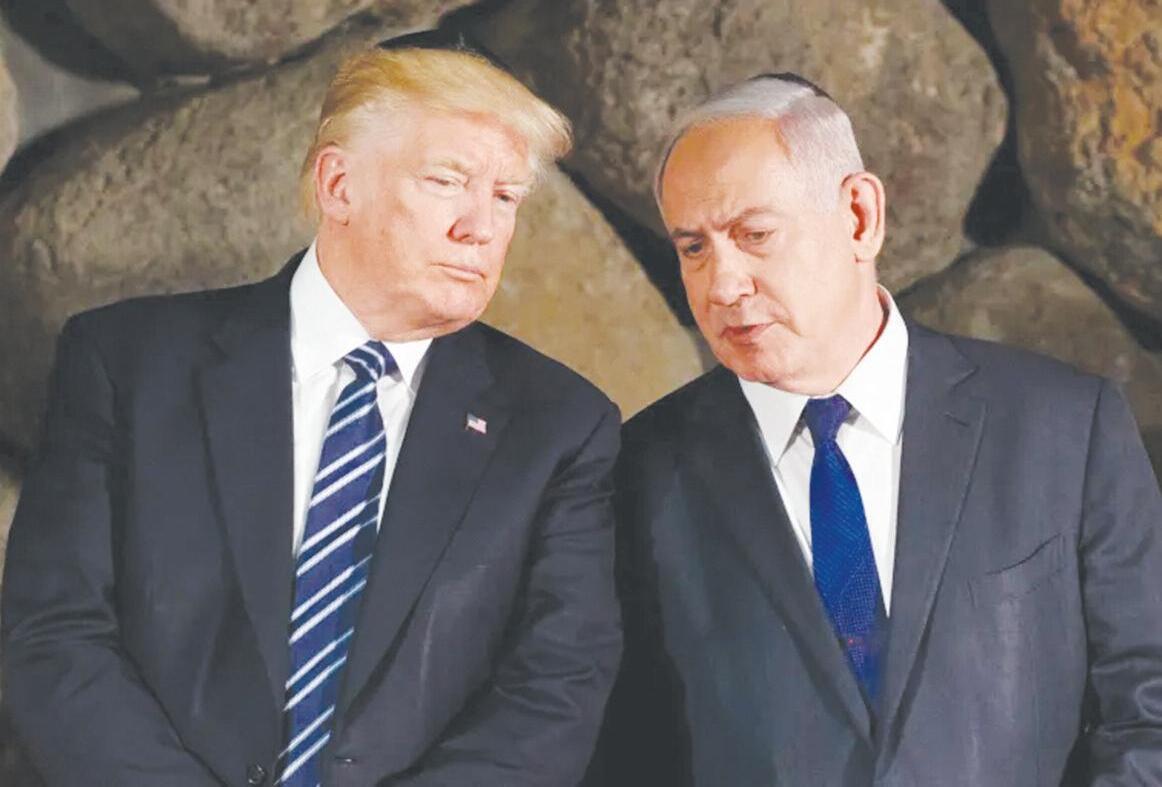
Nevertheless, challenges remain Israel s political establishment continues to resist, with Netanyahu
If the plan succeeds, it will not only be remembered as TrumpÊs greatest diplomatic achievement but also as the moment when the world finally forced Israel and Palestine to imagine peace . If it fails, it will join the long list of shattered hopes in the Middle East. For now, however, the world stands at a rare crossroads one where the slaughter has paused, the diplomacy has begun, and the possibility of justice has flickered into view.
W h y H a m a s a g r e e d t o r e l e a s e t h e h o s t a g e s
K haled Elgindy is a visiting scholar at G eorgetown Universit y ’s Center for Contemporar y Arab Studies, and an exper t on the M iddle East He is also the author of the book ‘B lind S pot: Americ a and the Palestinians, from B alfour to Trump’
I don’t know if you followed what was happening in Italy, but you had a mass mobilization unlike anything I’ve seen in my lifetime. M illions of people brought the countr y to a standstill with strikes
The Washington Post poll a few days ago showed that for t y per cent of Americ an Jews believe that Israel is committing genocide. That ’s stunning


What were the main factors that led to this deal?
I think Donald Trump was the factor We all knew that it would take the President of the United States to tell Benjamin Netanyahu, That s it It s time It s enough We thought we were at that moment in January when we had a ceasefire, but somehow Netanyahu managed to convince Trump to let him collapse it I think where it got to be too much was after the Doha strike which really sort of backfired on Netanyahu
How do you understand Hamas s willingness to make a deal now? How have their calculations changed, if you think they have?
Their basic line has not changed They have been willing to make a deal since the very early weeks of the war back in the fall of 2023 We saw that with the very first hostage release Many people have since forgotten, but there were something like a hundred Israeli hostages released in the span of a week I think Hamas has been willing to make deals But that truce was short-lived because the Israelis were not interested in ending the war at that point hostages or no hostages I think Hamas has been willing to make a deal to release the hostages to release all of them but in return for some kind of assurance that the war would actually end And I don t think that s an outrageous demand that if they re going to give up their one piece of leverage, they should have some reasonable assurance that the war is going to end They thought they had that in January of 2025 and then they didn’t Netanyahu’s word and President Trump s word did not amount to much at that point But I do think Hamas s calculations have changed because the group is much weaker now I think the other stakeholders in the region, the Arab states especially, are fed up and want this to end And so when Trump put forward his plan as lopsided as it was the Arab states and others embraced it not because they loved the terms but because they just wanted to be done with
supposed to hand over their weapons Gaza is going to be controlled indefinitely by the Israeli Army and there will be an international force and politically it will be overseen by some international trusteeship headed by Trump This is not something that any Palestinian would welcome So that really puts them in a bind But they managed to find a way to say yes, but and that was really the only possible response they could have had They couldn’t say no They couldn’t say no to the President of the United States, especially when the Arab states were saying yes And also they couldn’t say no to the people in Gaza who were so desperate for this to end and who were basically demanding that Hamas just accept the terms as they were
There’s been a lot of speculation about what Hamas wanted from this war Sometimes you hear people say that what Hamas wanted was for Hezbollah and Iran to join the fight against Israel Sometimes you hear people say it was to sabotage efforts that Israel was making for normalization agreements with its Arab neighbors Sometimes you hear that Hamas wanted a brutal war, so Israel’s reputation internationally would be hurt, and brought down to the level that, indeed, it is at today But if you think that Hamas would’ve come to an agreement early on, which I assume would have included a hostage-for-prisoner release then you are making it seem like these grander ambitions were not necessarily what they wanted, because that would’ve brought the war to an end in 2023 So then why did Hamas launch the October 7th attack other than that they wanted to kill Israelis?
It is a hard question to answer because obviously we can t get into the minds of the people who planned and executed what happened on October 7th Many of those people are dead, including Yahya Sinwar But I think it’s fair to say that what did end up happening on October 7th was much bigger than what its planners had envisioned I don’t think they set out to kill twelve hundred people eight hundred of them civilians and bring two hundred and fifty hostages including elderly people and children back to Gaza I don t think that was the plan I think they had a much more modest plan of maybe a few dozen hostages, probably mostly military and police, because those are high value to use as bargaining chips with the Israelis And I think things got horribly out of control on that day The other thing that they didn t anticipate was that Israeli defenses would collapse as quickly as they did on that day They really had the run of the place in these different communities, and the killing spree expanded I think, in general, we can say that this operation was intended first and foremost to shatter the Israeli sense of complacency and contentment with the status quo I think at a minimum that was clearly their plan and they succeeded in that
I’ve read a lot of pieces about the two-year anniversary of October 7th The common line is that Israel is incredibly strong in the region: it has
defeated its enemies in Lebanon and Syria, and it has bombed Iran, and it’s shown incredible military strength And yet, at the same time, Israel’s international reputation is terrible Public opinion in the U S and in European countries is tilting against it The Palestinian issue is on the front page of the newspaper I could see that if this had happened to Israel’s reputation in 1995, or in 2005, it really would’ve been catastrophic But in 2025, I’m just not sure how much this matters I don’t think Israel is going to run out of weapons from the West anytime soon The world itself is getting much more autocratic, in the same way that Israel is becoming more autocratic Even if there s been some success at a horrific cost to Palestinians in turning the world against Israel, I’m not sure how much that matters anymore
I think it does matter because what’s changed is something that is so fundamental This has completely shifted the narrative That s a clichéd term I know but you now have an entire generation never mind in the Arab world but in the West, in the United States, in North America, in Europe, in Australia, and in Canada, all over the world that has been politicized, if not actually radicalized, by Gaza They cannot unsee the things that they have seen over the last two years And yes that s not really affecting the policies of any of these countries Or maybe it is a little bit; even if I can t say that it s affecting American policy it is having an impact in Europe There s the whole statehood recognition that has come from France and the U K and Canada and Australia Where does that come from? Well that’s largely a result of mobilization domestically People are angry People are disgusted with Israel s response
Do you have any optimistic take on what this deal will mean for Gaza in the medium term? I hope that the short-term truce will mean food and aid entering in much more sufficient quantities, but beyond that do you have any hope?
I think it s going to be a very difficult road ahead I haven t been on the ground in Gaza in the past two years, but, from everything that I ve seen and read, it s going to be hard I don’t know that Gaza is even a place where humans can continue to live in any meaningful way Almost everything has been destroyed There s almost nothing left even of Gaza City All the hospitals are basically not functioning There are no universities There are no schools There are no roads There s no sewage-treatment plants, and there s no infrastructure Everything has been destroyed What will it take to rebuild? Obviously, it will take massive resources and I just don’t know if they’re going to be there There might be some kind of donor conference and all kinds of pledges but will
Qamar Bashir

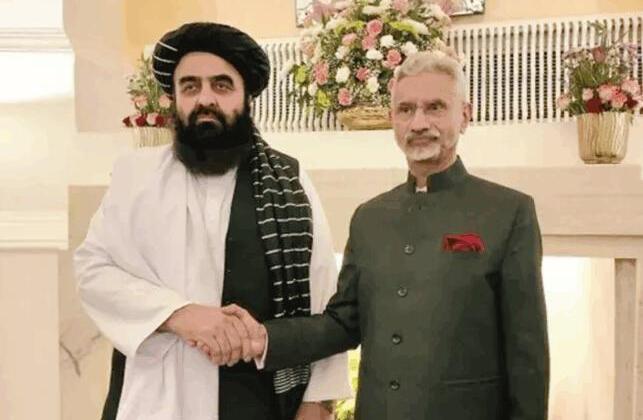
UN relief chief outlines 60- day plan to deliver vital aid af ter G aza ceasefire
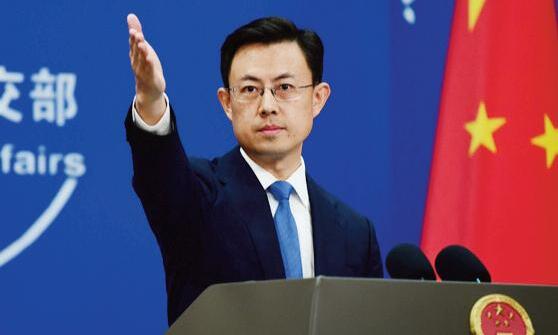
C hina’s social safety net widens its reach over 14th Five -Year Plan period

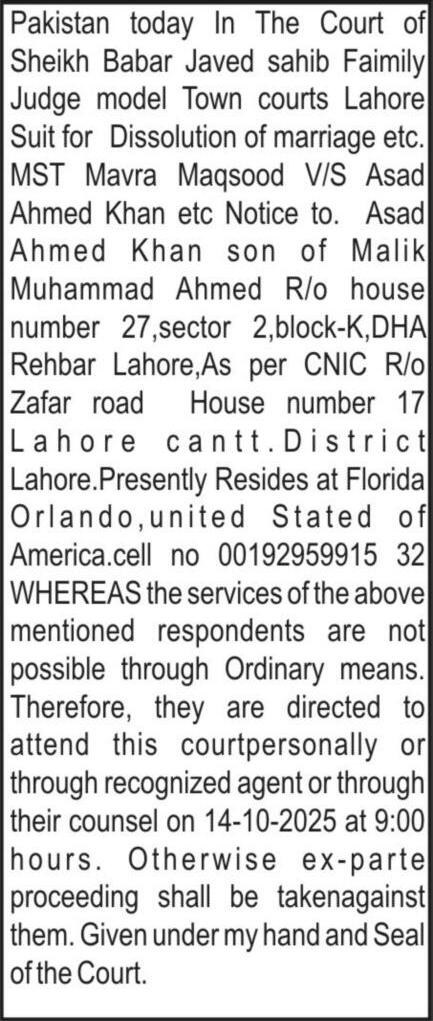


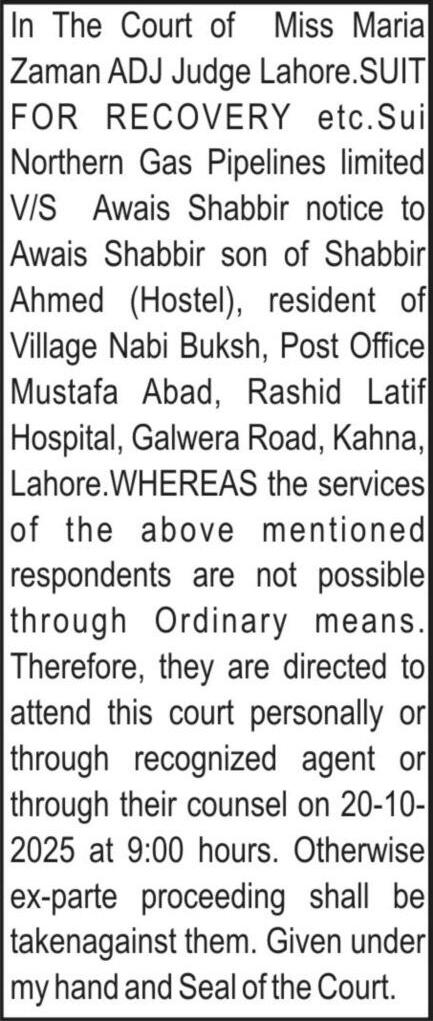
part of the Chinese territory This is the real status quo across the Taiwan Straits ” He further stressed that the biggest threats to peace and stability in the Taiwan Straits at present are the separatist activities for Taiwan independence and external interference The Lai Chingte
principle and unequivocally oppose Taiwan’s independence ” Guo emphasized that this year marks the 80th anniversary of both the victory in the Chinese People s War of Resistance Against Japanese Aggression and the World Anti-Fascist War, as well as Taiwan’s restoration to China,
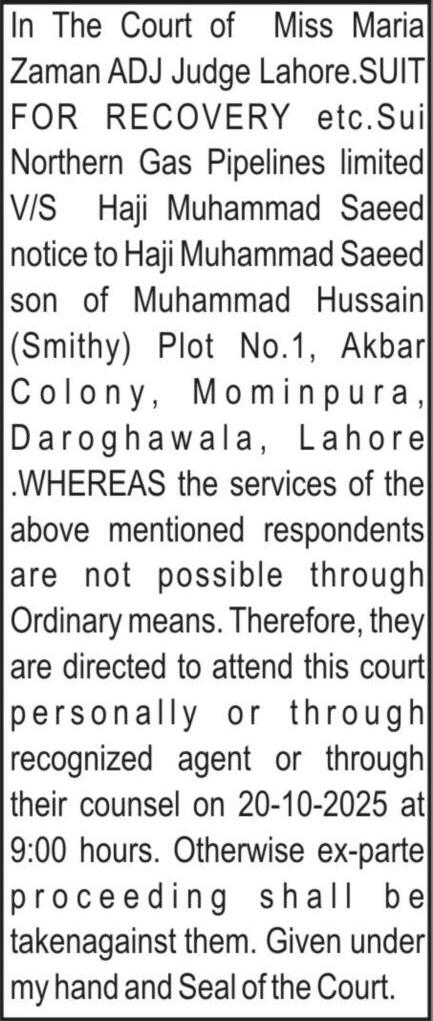

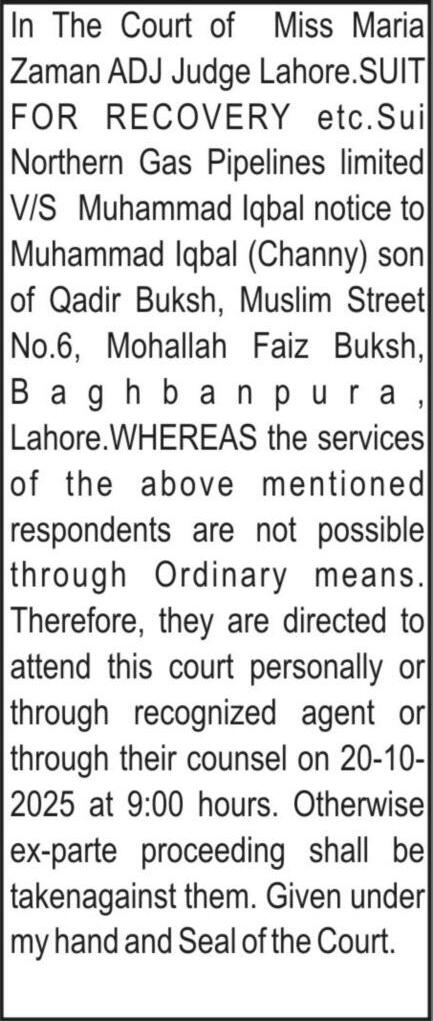
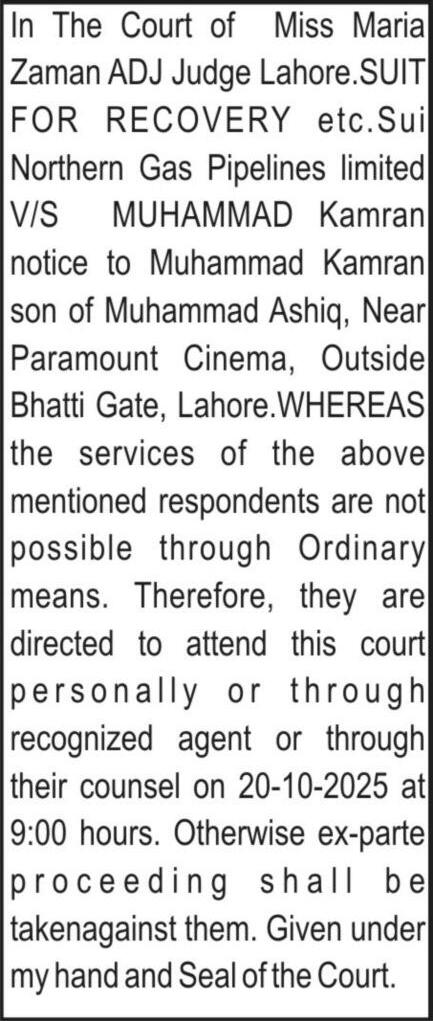

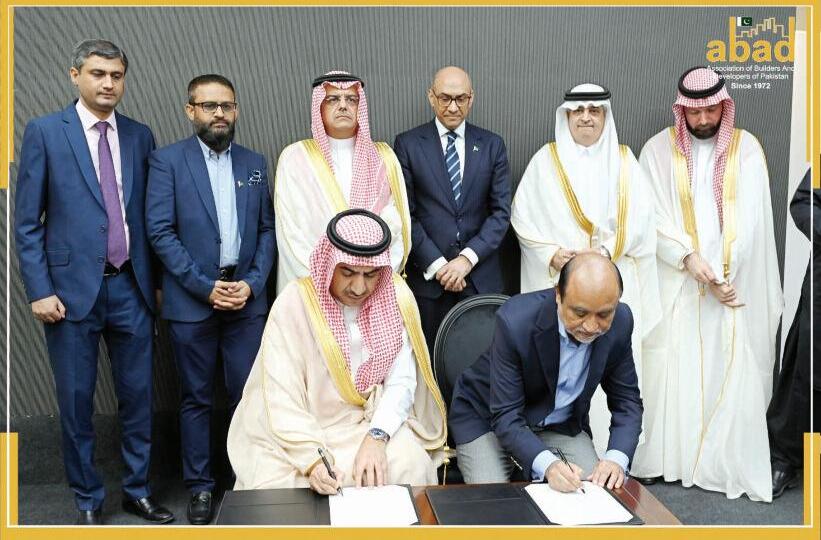
PUNJAB CM, SAUDI PRINCE DISCUSS ENHANCED TRADE, INVESTMENT UNDER JOINT COUNCIL
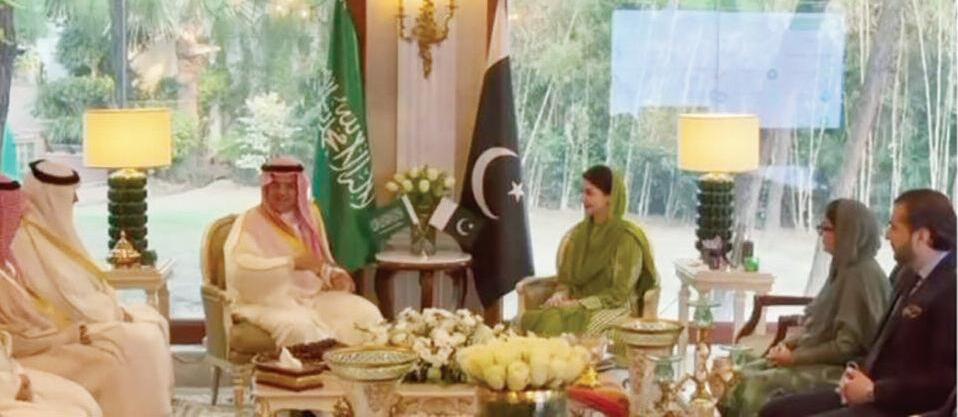
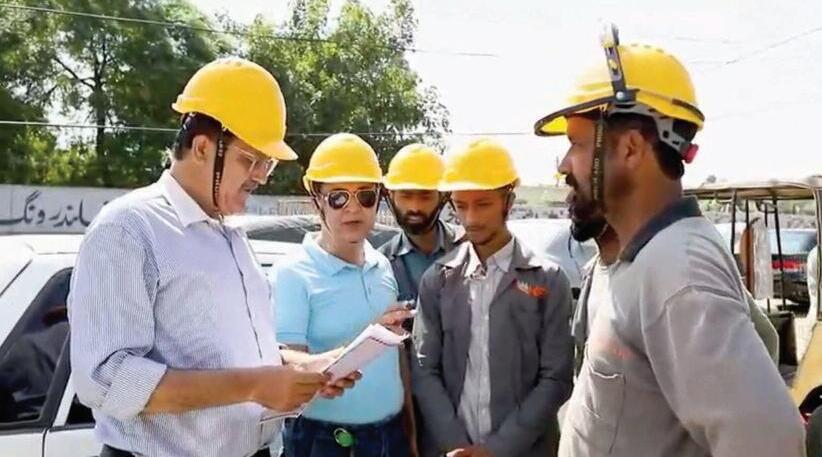
Spotif y names Samar Jafri as RADAR Pakistan Ar tist for Q4 2025
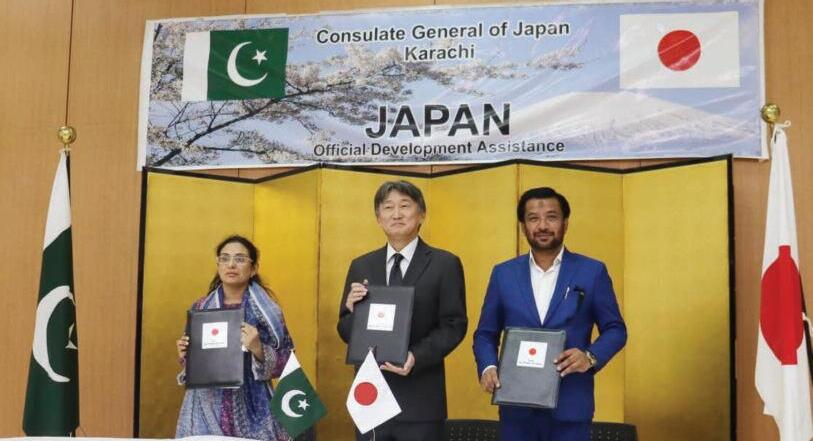
Complaint about extortion slips or threats on new web portal will lead to immediate FIR registration: Lanjar
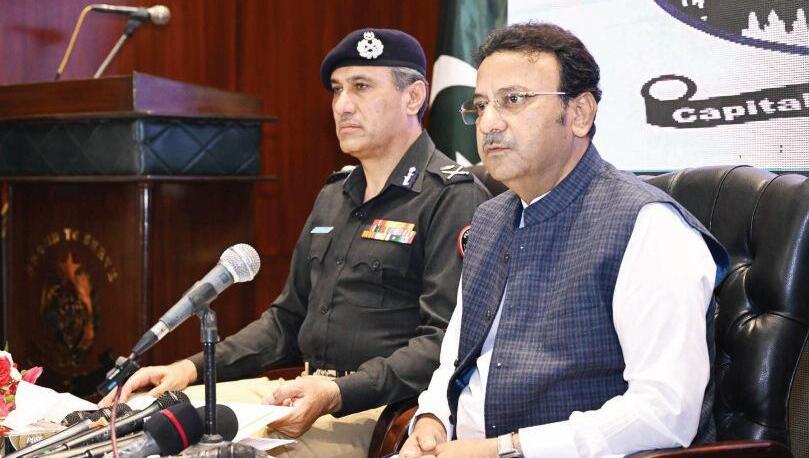
KARACHI
S ta f f r e p o r t
Sindh Home Minister Zia-ul-Hasan Lanjar held an important press conference at the Karachi Police Office, where he stated that extortion is not only a serious crime but has also become a major issue of concern in recent times He emphasized that since Karachi is Pakistan s economic hub the government s foremost priority is to provide a peaceful environment for the business community and traders of all scales, ensuring safe and free business activities at every level The Home Minister said that while some areas of the city are affected by land mafia issues efforts are being made in coordination with local traders and communities to resolve these matters amicably He added that although the issue of extortion has been given significant hype, both the CIA and the district police are fully committed to eradicating this crime from its roots and have been conducting effective and coordinated operations At present, Wasiullah Lakho and Samad Kathiawari are operating extortion gangs from Iran For their arrest a formal request for Red Warrants has been sent and the Sindh government will also request assistance from the Federal Interior Minister
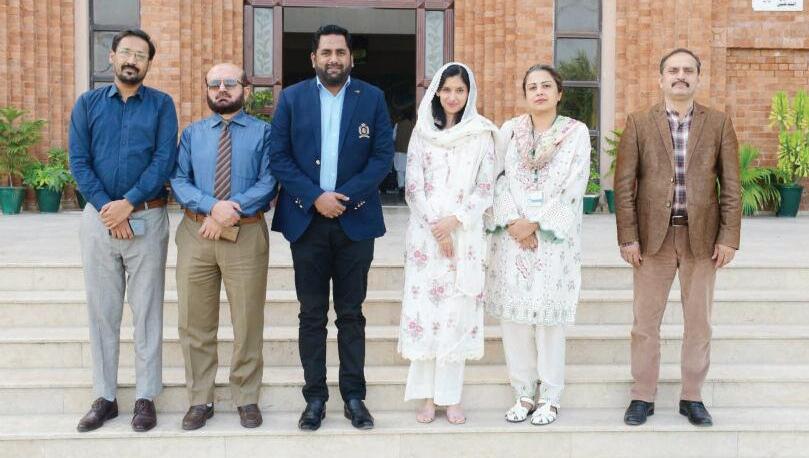
Builders Behind the Scenes” was held at the Council Hall Administration Block International Islamic University Islamabad (IIUI) The contest was launched under the vision and directives of IIUI President, Prof Dr Ahmed Saad Alahmed, aimed at celebrating the dedication of the university s unsung heroes the labourers and custodial staff who contribute tirelessly behind the scenes A total of 14 shortlisted reels were evaluated in the final round The jury comprised senior journalist from Express News and content creator Fiaz Mahmood; Dr Asma Mansoor In-Charge Protocol and Public Relations; Dr Qurat ul Ain Malik and Dr Rooh ul Amin, Assistant Professors, Department of Media and Communication Studies; Dr Inaam ul Haq, Director Administration; and Muhammad Nauman Assistant Director Protocol and Public Relations After a detailed evaluation based on creativity storytelling technical quality and thematic relevance, the jury declared Syeda Zainab Tehseen and her team as the first prize winners, Muhammad Muzzamil Hussain as the second position holder, and Saqib Alam as the third prize winner The judges appreciated the students’ enthusiasm and creativity announcing that those who did not secure top positions would also receive appreciation
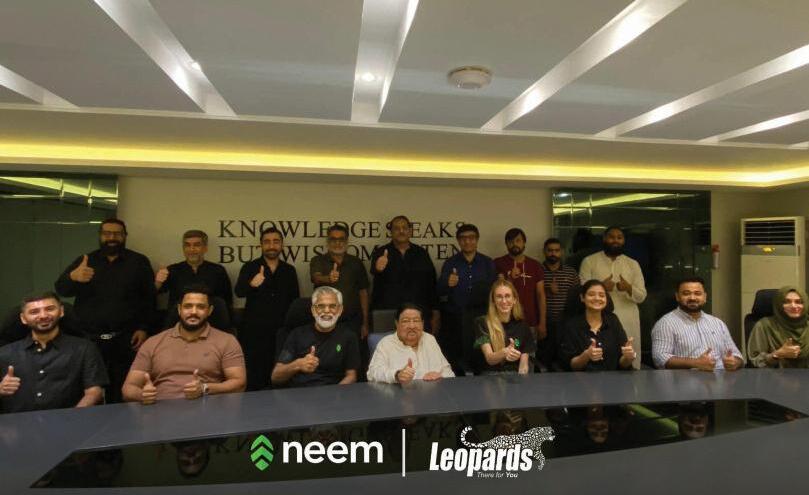
I S L A M A B A D: The Centre for Aerospace and Security
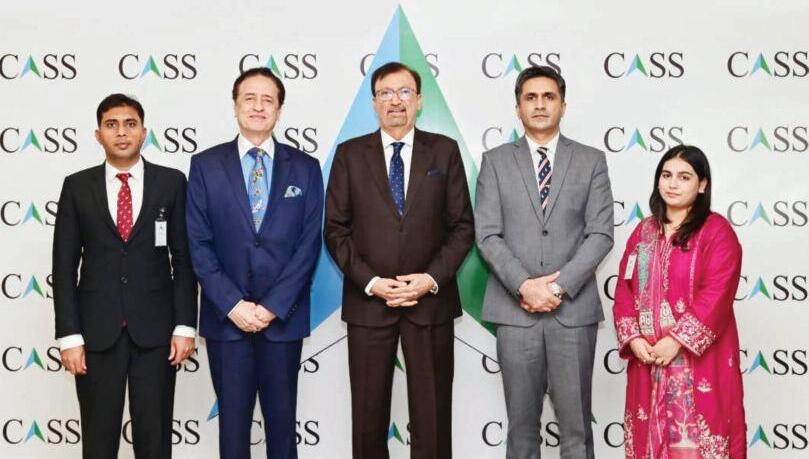

Shehbaz’s
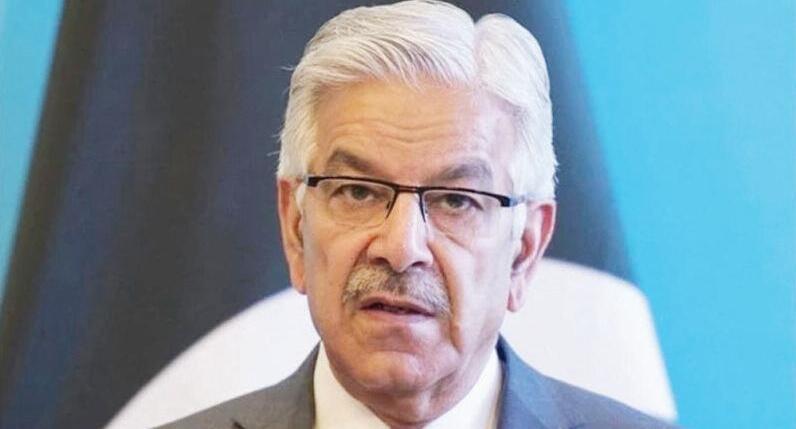
PESHAWAR s ta f f r e p o r t
Pakistan Tehreek-e-Insaf (PTI) leader and former Khyber Pakhtunkhwa
Chief Minister Ali Amin Gandapur has said he fully accepts the decision of PTI founder Imran Khan and reaffirmed that the party remains united under his leadership In an interview with a private television channel Gandapur said all parliamentary members have expressed full confidence in the founder ’s decision, adding that “the opposition is trying to create unnecessary political drama but their conspiracy will not succeed He stated that Khyber Pakhtunkhwa has always been the stronghold of PTI founder Imran Khan, and despite political challenges, the party’s workers have remained steadfast through every
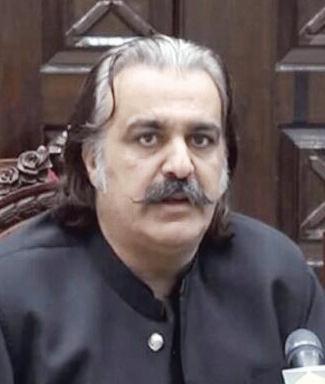
difficulty since 2022
“The founder of PTI directed me to resign and I have done so in compliance with his orders he said adding that those trying to prolong the issue are only creating further confusion Gandapur emphasized that he will not accept any ministerial or party position even if offered
again by Imran Khan I have already conveyed my message that I will continue working as a dedicated party worker ” he added He also remarked that the opposition cannot topple Sohail Afridi s government through political maneuvering, warning that Pakistan is already facing serious challenges and further instability would be damaging It is pertinent to mention that a day earlier Imran Khan had removed Gandapur from his position as Chief Minister of Khyber Pakhtunkhwa
“It has been decided that Ali Amin Gandapur will no longer remain the Chief Minister ” Salman Akram Raja said confirming the development He added that Sohail Afridi would be appointed as the new Chief Minister of Khyber Pakhtunkhwa

